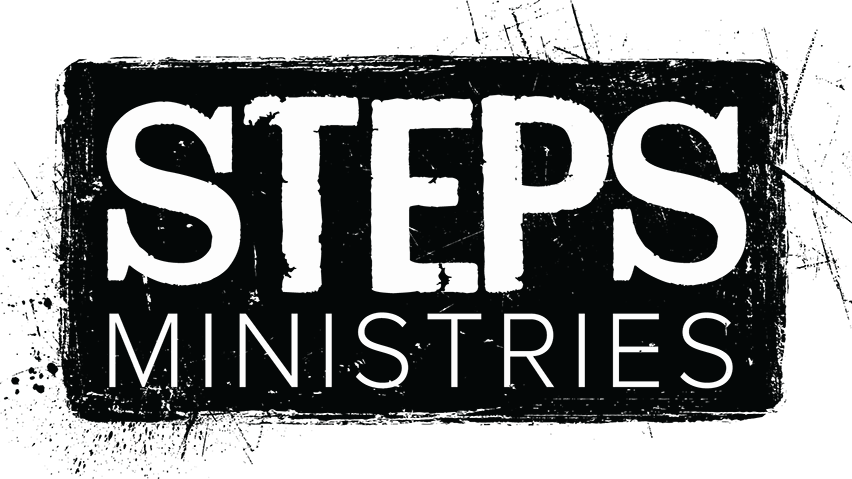
There’s been a lot of talk about pronouns lately. Pronouns are a very important part of the English language. Well, before we go any further, this blog post isn’t about pronouns, it’s about prepositions.
Now that I’ve got your attention, I want to talk to you about something that every Christian, especially church pastors, leaders, priests, vicars, etc. should consider. What are our church’s prepositions?
You may have heard someone pose you the question “If your church closed today would the city mourn?” This question is incredibly good and also convicting. It cuts right to the heart and challenges us to be more engaged in our communities. I personally have a hard time with this question, because it makes me feel like giving up. I mean, maybe some people would miss Steps if we weren’t there, but would the city mourn? I’m not egotistical enough to say that.
Before we get to the preposition thing, let’s talk about this, what is the point of the church?
What is the point of the Church?
I think the purpose of the church is two-fold and it can be boiled down to two words. Relationship and representation. (Read the New Testament if you want Biblical backing to what I’m saying. It’s replete with it.)
- The first purpose of the church is to foster in people a relationship with God.
- The second purpose of the church is to foster in people a representation of Jesus to those around us.
So, now we’ve got that out of the way. What’s all this about prepositions?
Well here it is. Every Christian should ask themself, is my church an “in” church, a “to” church, or a “with” church regarding the way we engage with the community.
In the community
To the community
With the community
It’s worth saying at this point that I’m basing this article on one page out of a book that I’m reading called Communities First by Jay Van Groningen. I 100% recommend that every church leader read this book.
Pay Attention To Your Preposition
1. The church “in” the community
If your preposition is “in”, then your church doesn’t particularly desire to influence the community and doesn’t desire members of the community to influence it. Your church is investing nearly all of its resources on its own members. It exists more like a social club, for the benefit of its own members.
From the viewpoint of people in the community, your church is a fortress. It has little to do with the minutiae of their lives. They see people come and go from it, lock up and that’s all. As it’s not paying property taxes, it’s more of a drain on the community than it is bringing them any good.
2. The church “to” the community
If your pronoun is “to”, then your church has a desire to bless and help the community, however, you don’t want community members to influence it. A small percentage of time and resources are allocated in the community. There are relationships with community leaders and stakeholders, but they’re not a part of the church’s planning.
“To” churches have really good intentions, but tend to assume they know what’s best for the community. They usually overlook the gifts, skills and resources in the community that are doing the same things as them.
From the viewpoint of the community your church has some perks. They can see that there are some programs and services that benefit people directly in the community. However, since the church uses the streets and public services while paying no taxes, the church is more of a net neutral presence. Your church probably won’t be invited to the table to weigh in on important decisions in the community.
3. The church “with” the community
If your pronoun is “with”, then there is a desire to influence the community, and a desire that community leaders influence it. There are significant amounts of resources invested in the community. The church sees benefitting in the community as being a vital part of its purpose. Your church looks for and unleashes gifts that are already present in the community. It’s leaders invite community leaders to the table as it thinks about how it can best serve the community
From the viewpoint of the community, your church is both a servant to and an integral part of the community. It adds value to the residents of the community as a whole. Though it doesn’t pay taxes, it’s seen as a net contributor to the community.
Conclusion
I want to invite you to take stock of your church’s ministry profile in your community. Please don’t get the impression that I’ve arrived and I’m pointing fingers. I’m really not. In fact, the finger is coming right towards me, because I recognize that there are a lot of ways that we’ve got this preposition thing wrong in our community, and perhaps still are.
My wife and I started a church recently, and we’re taking time to really rethink church. We already have the understanding of the gospel that we know we’re called to preach, but what we’re evaluating is the way we’re to go about that in our community.
No matter what style or denomination of church you’re a part of, this preposition thing relates to you. God was at work in your community before you arrived. Think about that for a minute. God has invited you to be a part of His vision for your community. It’s time to reevaluate, repent and get on board with God’s plan rather than fulfilling your agenda.
Go be a “with” church!

 A Christian Non-Profit serving children, youth and families in Buffalo, New York.
A Christian Non-Profit serving children, youth and families in Buffalo, New York. 

